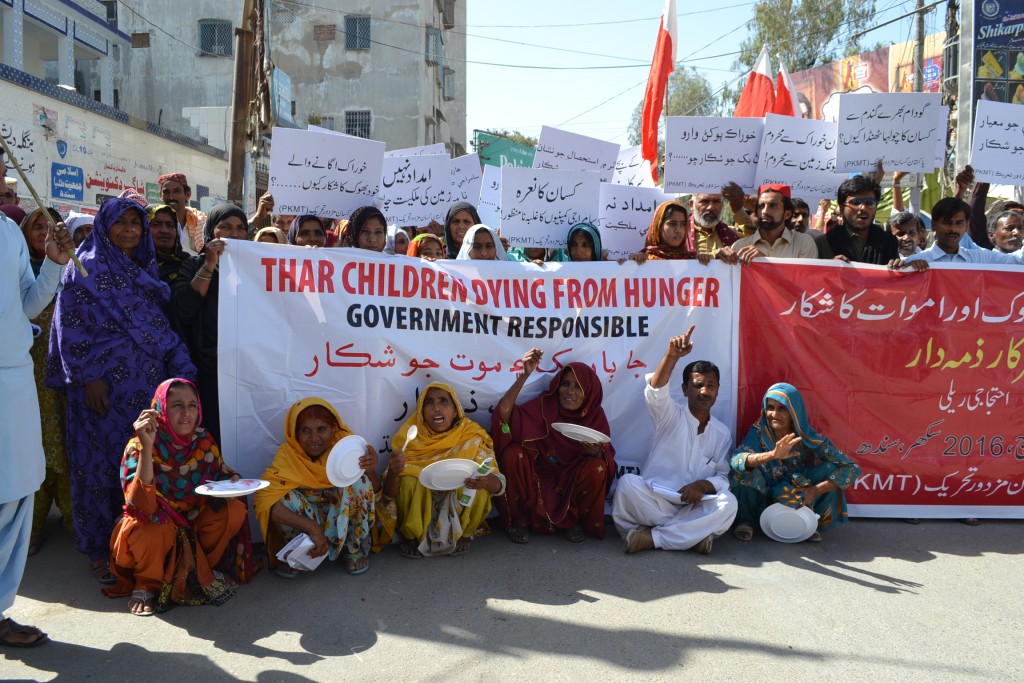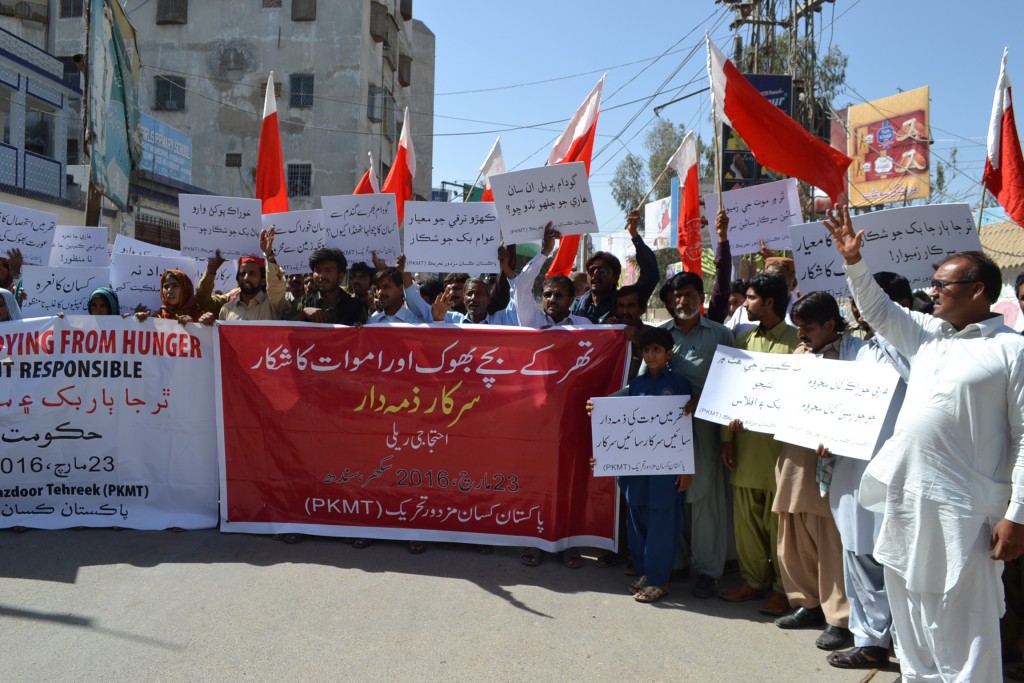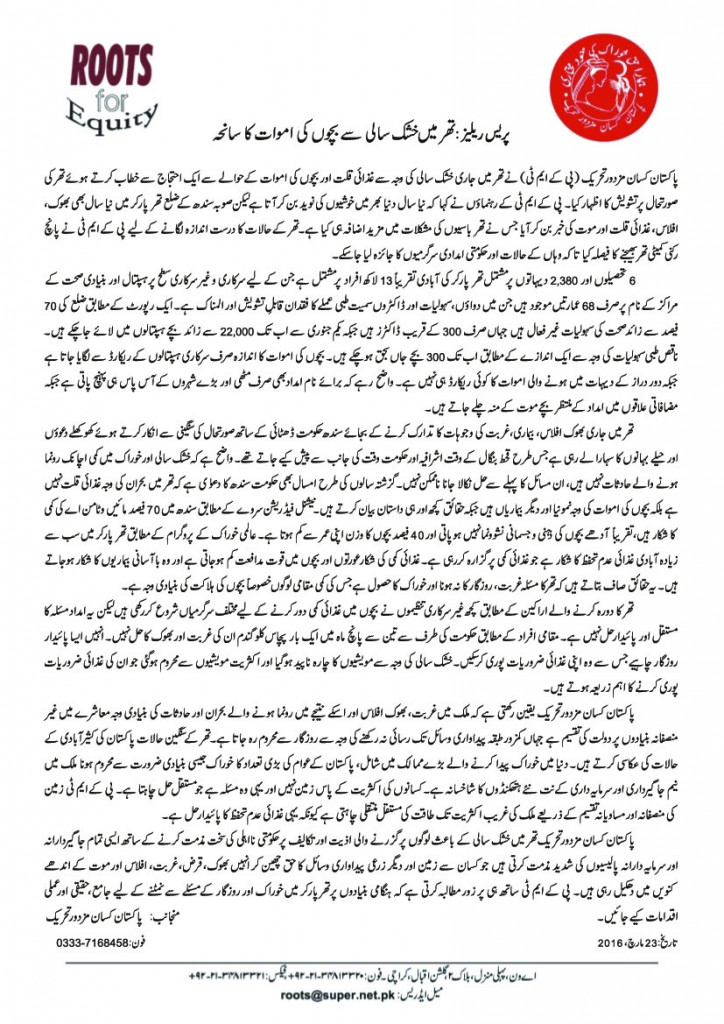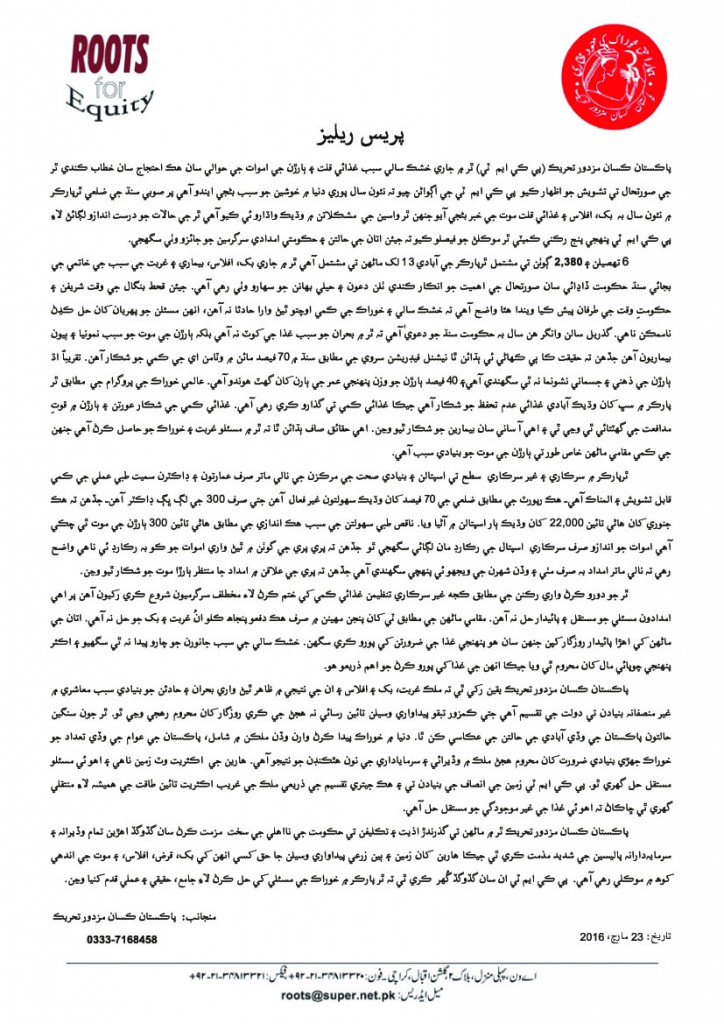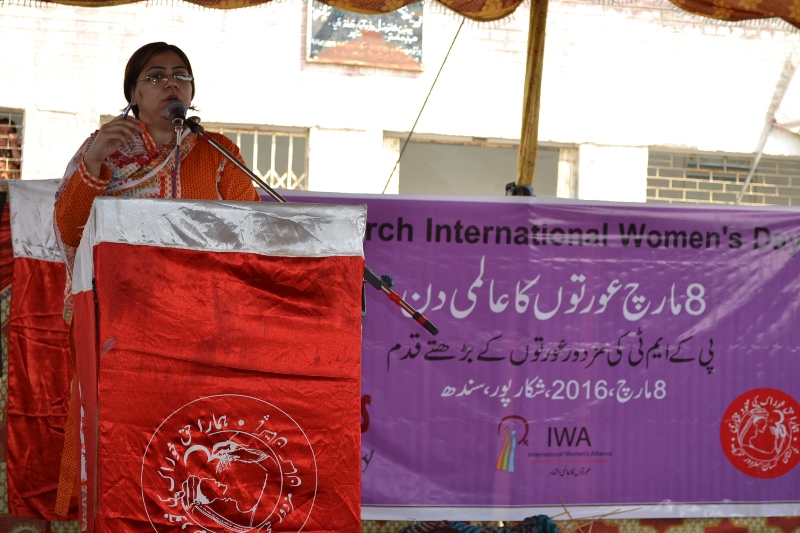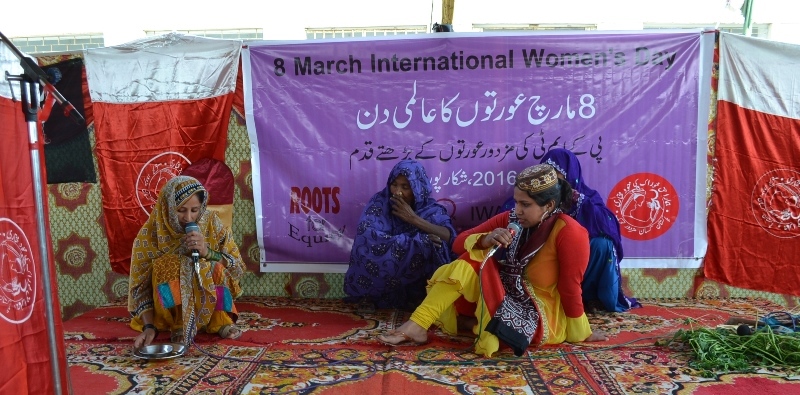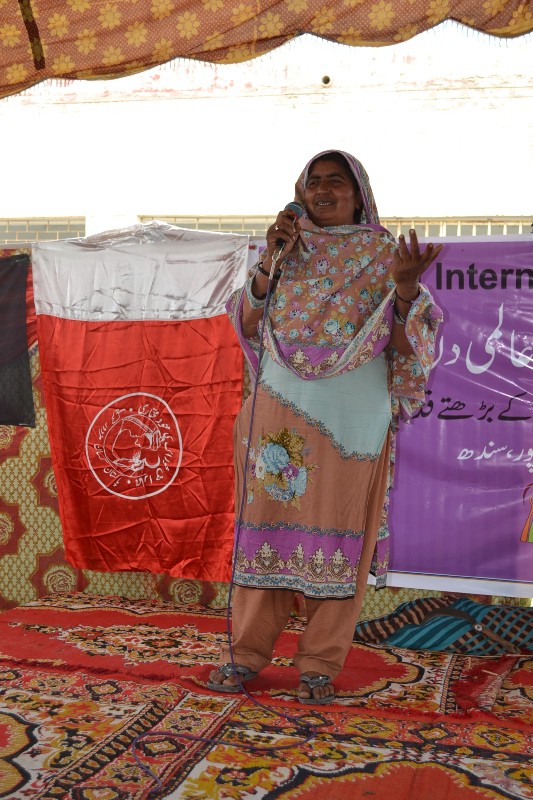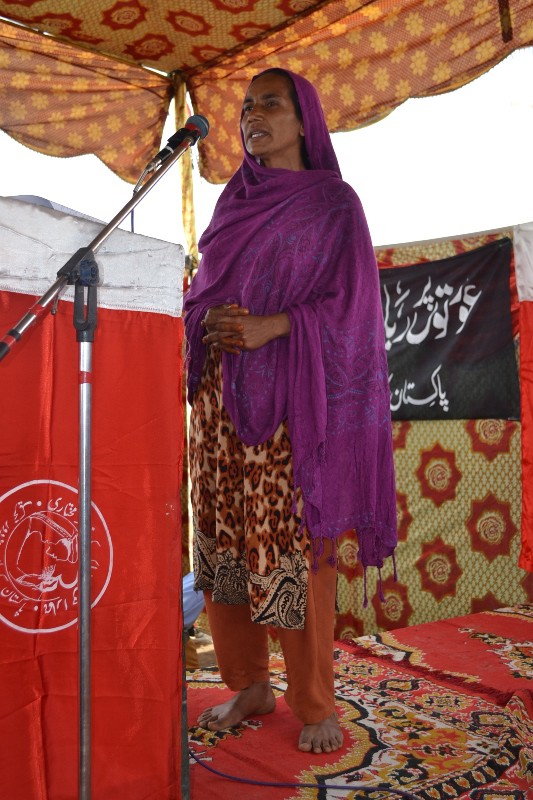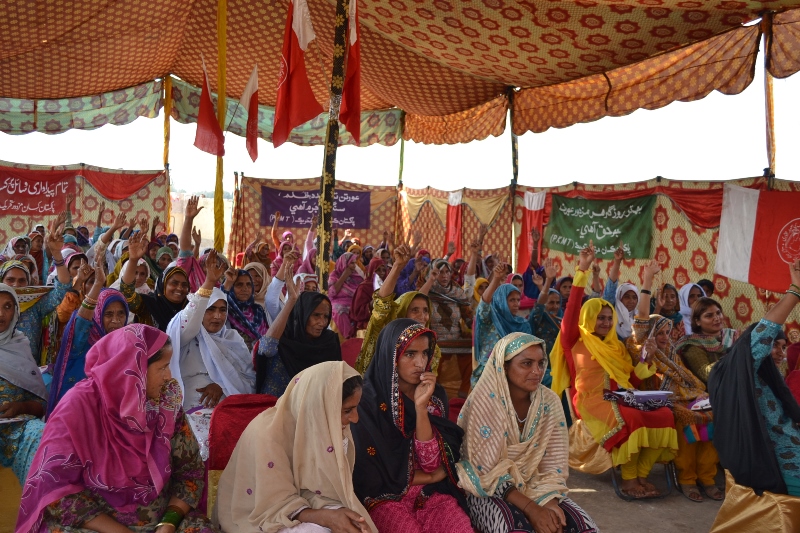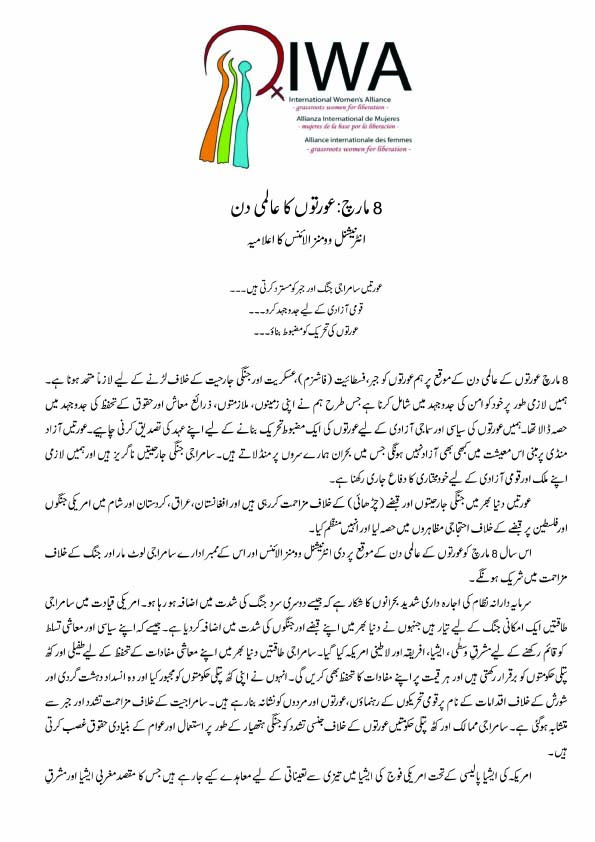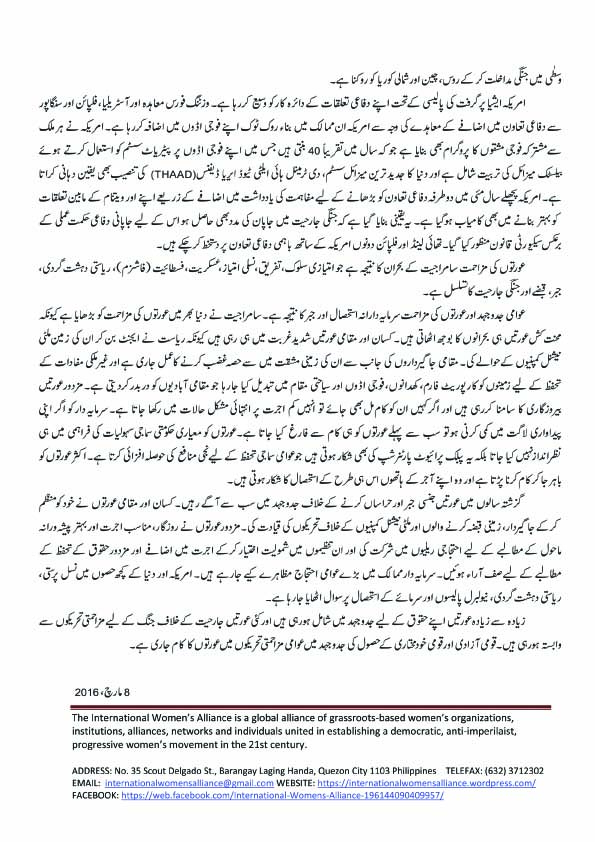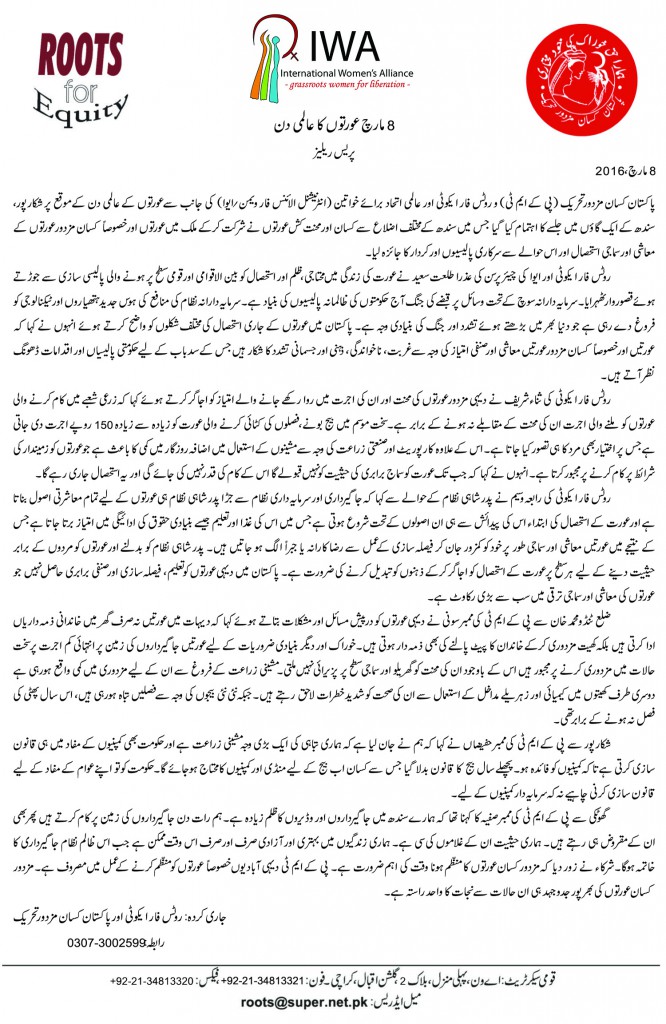Press Release
Pakistan Kissan Mazdoor Tehreek (PKMT) while addressing a protest on the issue of malnutrition and child mortality in Thar due to lack of food. The protestors expressed serious concern over the dreadful situation of Thar. Leaders of PKMT said that New Year comes with the promises of happiness in the world but in Thar, a district of Sindh, comes with reports of hunger, poverty, malnutrition and death which added difficulties in the life of Thar residents.
Estimation of infant mortality is calculated from the records of public hospitals while there is no record of deaths from remote areas. It should be clarify that the so called nominal aid is only able to reach just around Mithi and other tehseel’s headquarters while waiting children of suburbs died without getting assistance. Much of the deaths are accounted for the reasons of food shortage.
It is clear that drought and lack of food are neither spontaneous nor impossible to solve. As in previous years, this year government again claimed that the crisis in Thar is not related to malnutrition and lack of food but the children deaths due to pneumonia and other diseases while facts told quite another story. National Federation Survey showed 70 percent of mothers are suffering from vitamin A deficiency in Sindh, almost half of children failed to develop their mental and physical stability and 40% of children weighs less than their age. According to the World Food Program most of Tharparker’s population suffers from food insecurity that has been living on food shortage. Nutritional deficiencies among women and children reduced immunity then they are easily prone to disease. These facts clearly show that poverty, unemployment and food scarcity are the main causes of Thar issue, leading child mortality and other complexities.
‘Some NGOs have started various activities to address nutritional deficiencies in children’ for PKMT ‘this is not the permanent and sustainable solution of this issue’. According to locals, once 50kg of wheat’s sack in three or five months provided by the provincial government doesn’t solve of their hunger, poverty, starvation and many other problems. They want that decent jobs to fulfill their nutritional needs. Drought has caused the extinction of animal fodder and many lost their cattle & livestock which were the main sources of getting food.
Pakistan Kissan Mazdoor Tehreek (PKMT) believes that the foundations of this crisis due to unfair distribution of wealth in society where the weakest class is deprived of employment because of not having access to productive resources. Majority of farmers do not have their own land which is the major cause and needs permanent solution. PKMT demands permanent transfer of power to the country’s poor majority through just and equitable distribution of land because this is the only durable solution to food insecurity and livelihood.
PKMT strongly demands comprehensive, genuine and practical steps to tackle the crises of food and unemployment in Tharparkar as soon as possible.

